I’m very happy today to welcome the lovely Jenny Ashcroft to the blog. Her first novel has just come out in Germany, Die Frauen vom Rose Square. She wrote the novel in English – titled Remember Me – and it found its way to a German publisher this year. Jenny currently lives in Singapore and is on her way back to live in England later this year. She’s a busy working mum with another novel finishing off now and her third novel in the pipeline.

[1] Can you tell us a little bit about your writing journey before publication?
I’ve always loved writing, and have long dreamt of one day writing a novel. But up until three years ago, I never got further than half-finished opening chapters started enthusiastically, only to be pushed aside every time work, a new baby or I don’t know what got in the way.
Then early in 2012, when we were living in Sydney (where my husband is from), I opened my laptop on the way home from work and started writing Remember Me. That night I stayed up with it into the small hours, and from then on, I couldn’t stop. I worked on the commute, after the kids went down, before they woke up. I did an online writing course with the Writers’ Workshop, and went to the York Festival of Writing, both of which helped me write and re-write until, eventually, I thought the novel finished. I then sent it off to some agents, received some rejections, and realised… I hadn’t finished at all. So, I got editorial feedback, did lots more rewriting, and then went to the Winchester Writers’ Conference in 2013. I signed with my agent, Caroline Hardman, not long after. (Caroline was actually one of those who rejected the MS before, but with insight on things I could work on.) Together we did some more editorial work, and then Remember Me went on submission.

[2] Your novel ‘Remember Me’ has been published recently in Germany as Die Frauen vom Rose Square. Could you explain how this came about?
At the same time as Remember Me went on submission in the UK, it went out to the major European markets. Whilst it disappointingly wasn’t the right time for it to find a UK house, there was interest in Germany. I can’t tell you how delighted I was about that. I will never forget the moment I opened my email to see the subject line from my agent, “German news”. It went to auction there, and not long after I signed with Goldmann. A very happy day.
[3] Here is the first extract from your novel: can you set the scene?
Absolutely. It’s taken from halfway through the book, when the majority of the protagonists are in Ypres, about to be thrown into the 1917 Battle for Passchendaele. Here we see Ella, the main character, at the end of the first day of the bombardment. Her brother, Walter, is in the line; the man she loves is by her side (for now).
Ella took in the view of the bombardment from a hill near the CCS. A group of them had walked up, morbidly curious to see what was going on after listening to the guns and caring for the fall-out from them all day long.
There was no moon in the sky but the land beneath them was aglow. It was as if the whole line was on fire. The dark zig-zags of the trenches formed gashes in the land, and were lit up by the flashes of exploding shells and heavy artillery. The shattered remains of Ypres had become unearthly silhouettes in the night.
There were men down there. Alive. Walter was down there.
It was a warm evening and a light breeze rustled the grass. Ella leant against a tree, she pressed her fingers to her chest against the force of the spectacle. Robert rested his hand above her. It was the closest he would dare come to touching her in front of the other staff. It was hard to know how she would have been able to stomach it without him there. As it was, she felt ill with it all. It was turning out to be worse than she had ever imagined.
And it had not even begun yet.
[4] What kind of research was involved in the writing of this novel?
I researched as I wrote, and for the most part it was book based. I studied the First World War at university, so I still had my notes and texts from then (dusty as they were), but there were lots of things beyond the battles that I needed to look into: the period overall of course (What did people eat and wear? What music was popular? What films?), then some more detailed questions besides (Would villages have had electricity? How long did a train from Oxford to London take?) The medical front forms a big focus for Remember Me, but I had very little knowledge of it. I researched the different types of hospitals in operation, the procedures that were undertaken in them, the evacuation routes from the trenches, the living conditions of the medical staff, their training… There was a lot.
Then, not long before I finished the novel, I went to Ypres, where a lot of the story is set. It was an amazing couple of days. I visited many of the battlefields, the museums, and the sites of the hospitals. It was incredible to be there, and it helped me in many ways with the final edits on the book. There’s a full account of my trip here:
http://jennyashcroftwriter.com/2014/09/26/visiting-ypres-summer-2013/
I loved the research for Remember Me; for me, it’s definitely part of the joy of writing historical fiction.
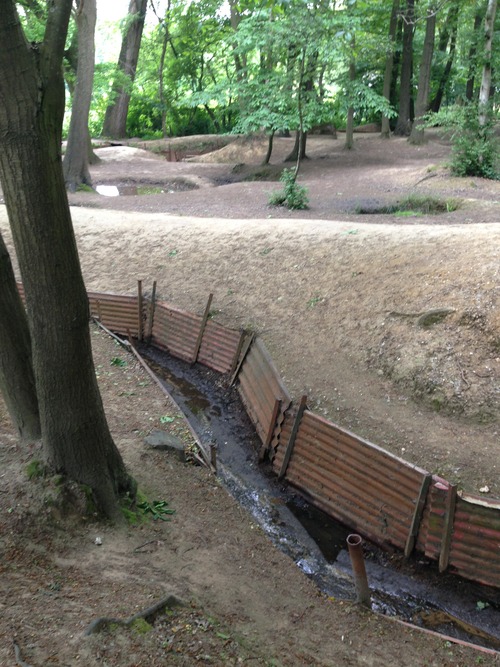
[5] What role does planning play when you are writing a novel? Do you produce a synopsis, chapter plans, character profiles etc.? Or do you find these unnecessary?
I’m still finding my way in terms of my writing process. With Remember Me, I pretty much made it up as I went along. I had very little idea of where the plot would take me, only that I wanted to centre it around Passchendaele, and only a loose concept of the characters. Since that meant a lot of rewriting, with my second book I planned more upfront. Caroline helped me brainstorm the central premise for the story, and then yes, I wrote character profiles and chapter plans. The thing is, aside from that central premise, it still all changed as I went along (and I’ve still had to do a lot of rewriting in the edits). So, it’s not that I consider planning unnecessary – I’m sure it helped me on some level – it’s just that I find that it’s in the writing itself that my ideas really come.
Here we see little Flora, a child who spends her war in Cumbria at the mercy of her malevolent stepmother, coming to terms with the departure of her beloved nanny, and the return home of her wounded father.
Nanny had had to go away. Even before Papa had come home, so Flora supposed she hadn’t talked to Papa as she had said she would. Something bad had happened to her son in the war (Nanny had a son? ‘My little boy,’ Nanny called him, ‘my poor, poor little boy…’). Like Papa only so much worse. Nobody told Flora what it was and her imaginings were very bad (not the right number of legs and arms like the man who used to work at the butchers or a mask instead of a face like the boy Mama had told her not to look at last week in the village).
Papa still looked the same as he always had. He cuddled the same too, laughed the same when he played in the nursery, spoke the same… But he wasn’t quite the same. He had lots of bandages that needed to be changed all the time and he seemed sadder.
Flora overheard him telling Mama about what war did, when she was sitting and playing so quietly with Sophia and Imogen that they seemed to forget she was there and started speaking in their grownup voices. He talked about shattered nerves (Flora knew nerves got tried, tested, pushed… got on. Shattered was what glass did when it broke and it sounded very painful), grown men crying (which seemed all wrong. What if Papa were to cry?), boys dying (‘Just boys, dead, gone, just like that’).
Men ending their own lives.
Ending their own lives? What a strange and new idea. Someone might choose to die? Flora had never thought of such a thing before. It made her feel a bit better, somehow, about Papa going again. He had told her he would have to, ‘Not just yet, my little flower, but it will have to happen at some point,’ and Nanny being gone. She wasn’t sure yet why it did. But it did.
[7] What was the experience like of seeing your words translated into another language? And what are some of the challenges and delights about having your novel come out in a country that speaks a different language to your own?
It’s been an amazing experience. The team at Goldmann have been great, and I’ve loved working with them to get Die Frauen ready. As for seeing my words in print for the first time, In German, well… that was certainly a very nice feeling. Humbling, too.
I suppose the real challenge is that I don’t speak German, so there’s not much I can do to help with promotion. Someone actually bought me a German course last Christmas, I need to get on and do it!
[8] What kind of fiction and which writers do you like to read in your spare time? Also, do you read fiction while you are drafting your novels or do you avoid this?I enjoy lots of different types of fiction, but historical tops the list. There are so many writers I like reading, but if I was going to name one, it would have to be Kate Atkinson. I love her books. I can’t wait for her new one!
I do read fiction whilst I’m drafting, although not as much now that I’m deep in editing – mainly because I work most evenings after my children go to bed.
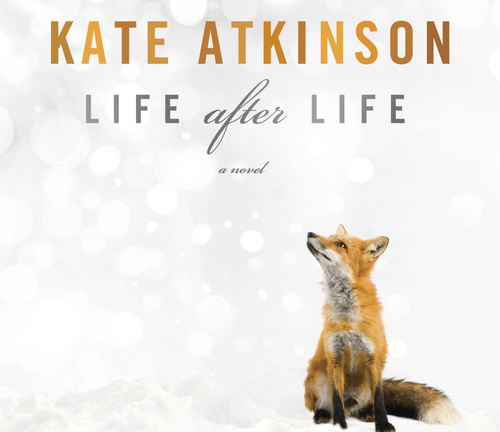
[9] I’m just being nosy now, but could you tell us a little bit about what it’s been like living in Singapore?!
Oh, it’s been great. We’ve lived here on and off for six years, even though we only planned to come for two! It’s very hot of course – and I have missed the seasons, autumn especially – but it’s a lovely city, with lots to it once you scratch the surface: shophouses in the shadow of high-rises, museums, great restaurants, parks (my favourite being Fort Canning, the old colonial heart). Then of course there’s so many places to travel to close by.
That said, we’ve been gone from the UK since 2007, and I miss it. I’m pretty excited that we’re finally moving home in April.

[10] Can you share a little with us about what you’re working on now? What is coming up next for you?
At the moment I’m finishing work on my second novel, a story set in Alexandria during the early years of the British Protectorate. It opens with the abduction of a British woman, Clara, then tells the tale of those trying to find her – and others who’ll stop at nothing to conceal what’s happened to her, and why. I’m very excited about it, and just finishing the final edits with my agent.
As for what’s next, I have two different stories spinning in my mind: one based in Singapore, the other India. I’m still trying to decide which to write first. Once everything’s tied up with my second book, I’ll get moving.
I’m also really proud to be working on the Womentoring Project, and am just getting going with my second mentee. I’m looking forward to working with her!

My blog is: http://jennyashcroftwriter.com/
My FB page is: https://www.facebook.com/jennyashcroftauthor?ref=hl
My twitter handle is: @Jenny_Ashcroft
My publisher Goldmann’s is: @Goldmann Verlag
Thanks so much to Jenny for such detailed and interesting responses. I for one can’t wait to read Remember Me when it’s out in English, which by the look of those gorgeous extracts above, won’t be long in coming.